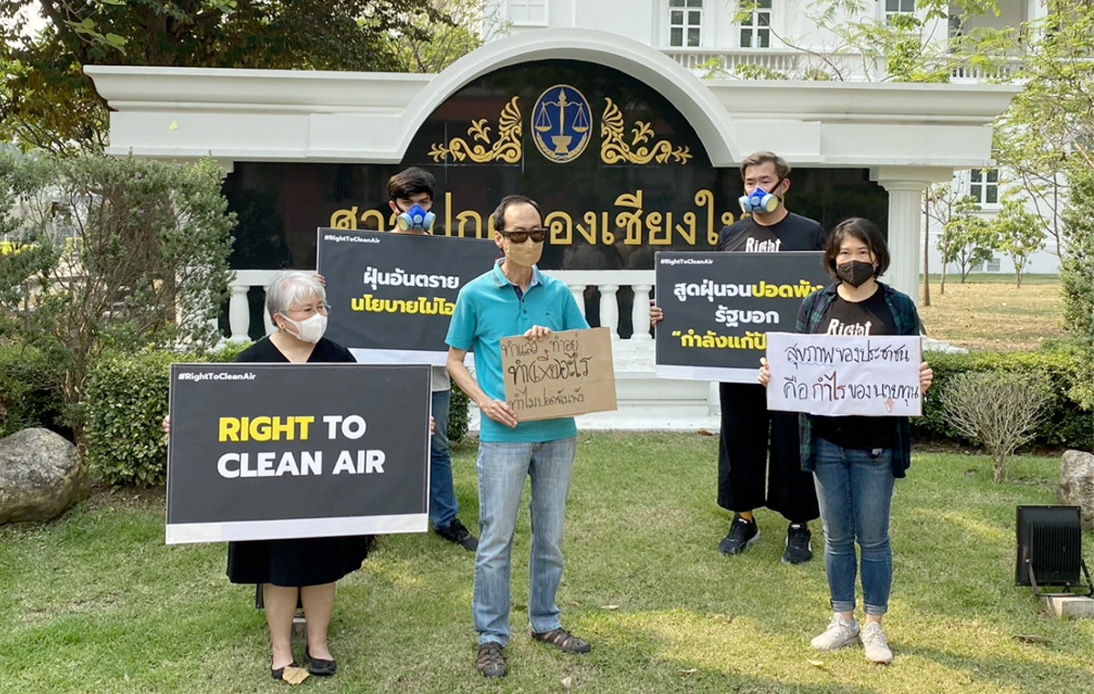
On Monday, around 1,700 individuals in Chiang Mai filed a lawsuit in the Administrative Court against the prime minister and two government agencies, accusing them of failing to address the persistent smog in the region, which they claim reduces their life expectancy by approximately five years.
Roughly 60 individuals appeared at the Administrative Court in the northern province to initiate legal action against the Prime Minister Prayut Chan-o-cha, the National Environmental Board, and the Securities and Exchange Commission. They allege that these entities neglected to use their power to resolve the northern region’s smog issue.
The class action lawsuit comprises approximately 1700 plaintiffs, including networks of northern citizens, activists, scholars from Chiang Mai University, and local inhabitants.
Between last Friday and Sunday, 727 individuals expressed their support for the lawsuit by signing their names at the Chiang Mai University’s law faculty, while approximately 980 others did so online. The complainants attribute the severe air pollution to contract farming.
Sumitchai Hatthasan, one of the plaintiffs and the director of the Centre for Protection and Revival of Local Community Rights, stated that the prime minister neglected to fully utilize his authority under the Enhancement and Conservation of National Environmental Quality Act to address the issue.
The National Environmental Board is accused by the plaintiffs of failing to effectively carry out the 2019 national plan for combating particulate matter pollution.
The Securities and Exchange Commission is deemed responsible for not investigating the sources of ultrafine dust pollution within the supply chains of prominent listed firms, which could contribute to resolving the issue.
Dr. Rangsarit Kanchanawanit, a member of Chiang Mai University’s faculty of medicine, reported that urban residents’ health was negatively impacted by consistently unsafe levels of particulate matter 2.5 micrometers or smaller in diameter (PM2.5) throughout the year. This pollution level increases the risk of lung cancer, heart disease, and stroke, and reduces life expectancy by 4-5 years.
The doctor said, “We want to see the government change its policies, to show a strong political will and not just be considerate towards capitalist groups. This could save millions of people from illness.”
Chatchawal Thongdeelert from the Breath Council stated that the PM2.5 problem worsens every year. The government must employ both short-term and long-term strategies to decrease air pollution.
“The root cause is burning, both in forests and on maize plantations… Political parties and the new government must prioritize this issue and have effective solutions,” he stated.




















